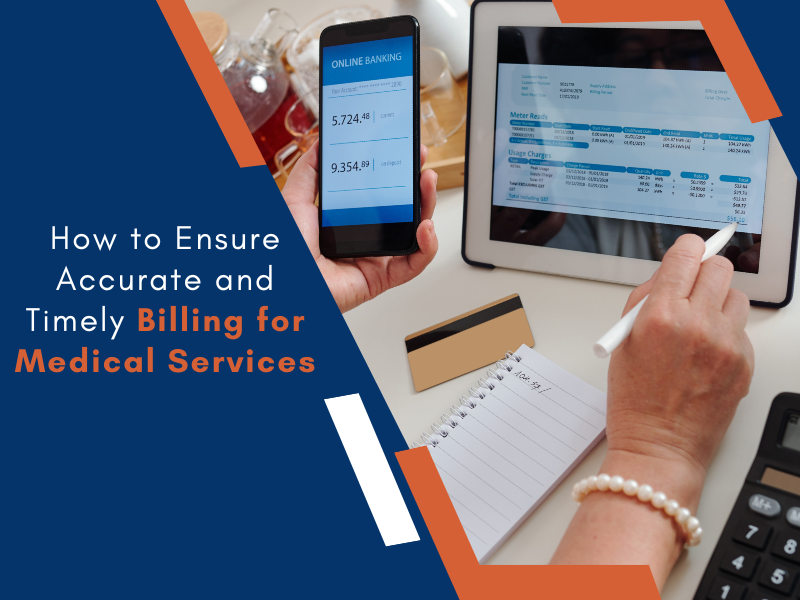In the healthcare sector, billing processes differ significantly between services based on the nature of treatment provided. Behavioral health billing and medical billing are two such specialized types of billing, each with distinct characteristics and challenges. While both deal with claims for insurance reimbursement, understanding the unique requirements of each is crucial for providers and billing professionals. This blog explores the core differences, the role of Medical Billing and Coding Certifications, and why these specialized skills are essential in managing these billing types.
Understanding Behavioral Health Billing
Behavioral health billing involves claims related to mental health services, including therapy, counseling, and psychiatric treatments. Unlike traditional medical billing, which often revolves around procedures for physical ailments, behavioral health billing focuses on services that address mental and emotional well-being.
Common Services in Behavioral Health Billing Behavioral health billing encompasses a variety of services, including:
- Individual and group therapy sessions
- Psychological evaluations
- Substance abuse treatments
- Medication management
These services often span extended periods and require consistent follow-ups, which poses challenges in managing billing and coding effectively.
What Makes Medical Billing Different?
Medical billing, on the other hand, involves the billing of services for physical health conditions. Medical billing professionals handle claims for a wide range of treatments, from routine checkups and surgeries to emergency room visits and specialized care. Medical Billing and Coding Certifications are essential in this field as they provide the necessary skills and knowledge to handle the complex process of translating treatments and procedures into standardized codes that insurers can understand.
Common Services in Medical Billing Medical billing covers a broad spectrum of services, such as:
- Preventative care (annual checkups, vaccinations)
- Acute care (treatment for sudden illnesses)
- Surgical procedures
- Chronic disease management
Key Differences Between Behavioral Health Billing and Medical Billing
While both types of billing involve coding and claim submission, several critical differences set them apart.
1. Coding Complexity
Behavioral health billing relies heavily on ICD-10 and CPT codes that cater specifically to mental health diagnoses and treatments. For example, CPT codes for psychotherapy sessions are used regularly in behavioral health, whereas medical billing might involve a wider array of codes representing various diagnostic and therapeutic procedures.
Because mental health conditions can be nuanced and may overlap with other health issues, accurate coding is essential for insurance approval. Medical Billing and Coding Certifications often emphasize a thorough understanding of both ICD-10 and CPT codes, equipping professionals with skills that are highly applicable in both behavioral health and general medical billing.
2. Reimbursement Challenges
Behavioral health services often encounter unique reimbursement challenges due to the nature of mental health treatment, which typically involves long-term, ongoing care. Insurance companies may set limitations on the number of therapy sessions covered, the types of treatment reimbursed, and even the maximum allowable charges per visit.
In medical billing, reimbursement can also be complex but generally follows more standardized procedures. Insurance companies are accustomed to approving physical health treatments, making the process relatively smoother. However, behavioral health billing may require a more hands-on approach to ensure full reimbursement, often involving negotiations and appeals to maximize coverage.
3. Documentation Requirements
One of the biggest challenges in behavioral health billing is meeting the extensive documentation requirements. Mental health treatments can vary greatly, and insurers often demand detailed progress notes to justify ongoing treatment. For example, a therapist or counselor might need to provide documentation proving that a patient’s therapy sessions are necessary for improving mental health.
In medical billing, documentation is also critical, but the requirements are generally less subjective. Medical professionals usually need to document symptoms, diagnoses, and treatments, which can be more straightforward compared to the nuanced documentation required for behavioral health. Professionals with Medical Billing and Coding Certifications are trained to handle these documentation challenges, as they are taught to accurately record treatment details and prepare claims with precision.
4. Privacy Concerns
Behavioral health billing involves sensitive information about patients’ mental health status, treatment plans, and progress. Ensuring confidentiality and compliance with privacy laws like HIPAA is paramount. Billing professionals must take extra care to protect patients’ mental health data, which may include sensitive diagnoses, therapy notes, and medications.
While medical billing also requires strict adherence to HIPAA and patient privacy standards, behavioral health billing necessitates heightened awareness due to the stigma that may still surround mental health issues. Medical Billing and Coding Certifications incorporate privacy and confidentiality training, which is vital in both fields but particularly essential in handling sensitive behavioral health data.
5. Treatment Frequency and Duration
Behavioral health billing often involves long-term or continuous care, such as weekly therapy sessions or medication management over years. This differs significantly from medical billing, where treatment is generally episodic, focusing on resolving a specific issue or managing a disease until the patient’s condition is stabilized.
Behavioral health providers often face difficulties in securing insurance coverage for ongoing care, as many insurers set limitations on the duration or frequency of mental health services. Certified professionals in behavioral health billing are trained to manage these nuances and work closely with insurers to help patients receive continuous support.
6. Patient Interaction and Billing
Behavioral health professionals often build close relationships with their patients, which can complicate the billing process. Patients may feel hesitant to submit claims or may require assistance in understanding insurance coverage. Billing professionals with experience in behavioral health often act as liaisons between patients and insurers, ensuring that patients receive the necessary support.
In medical billing, patient interaction is more limited, as the focus tends to be on the treatments provided rather than ongoing support or counseling. However, having Medical Billing and Coding Certifications equips professionals with the knowledge to guide patients through the billing process, regardless of the healthcare setting.
Why Medical Billing and Coding Certifications Are Important
Medical Billing and Coding Certifications play a crucial role in both behavioral health and medical billing. Certified professionals are trained to understand the unique requirements of different medical services, including:
- Accurate coding and billing procedures for various health services
- Comprehensive knowledge of insurance policies and reimbursement processes
- The ability to handle privacy concerns with sensitivity, especially in mental health billing
- Enhanced documentation skills that meet both general and specific healthcare billing requirements
For professionals looking to work in behavioral health, obtaining Medical Billing and Coding Certifications offers a distinct advantage. These certifications not only validate their knowledge in coding standards but also prepare them for the challenges that come with mental health billing. Likewise, medical billing professionals benefit from the certification’s rigorous training, enabling them to navigate complex medical billing processes seamlessly.
Why Choose Apaana Healthcare for Your Billing Needs
At Apaana Healthcare, we understand the complexities involved in both behavioral health and medical billing. Our team of certified billing specialists is equipped to handle the unique demands of each type of billing, ensuring accurate claims and timely reimbursements for our clients. Apaana Healthcare drives operational excellence with global healthcare management solutions, specializing in outsourced services for health plans. Our expertise covers member enrollment, claims administration, medical billing and coding, and provider engagement, offering you cost-effective and reliable solutions tailored to your needs.
Whether you’re a behavioral health provider seeking comprehensive billing support or a medical practice needing expert billing assistance, Apaana Healthcare has the experience and dedication to help. Partner with us for efficient, effective billing solutions that let you focus on what matters most—delivering quality care to your patients.
FAQs
What is the primary difference between behavioral health billing and medical billing?
Behavioral health billing focuses on mental health services like therapy and counseling, while medical billing covers treatments for physical health conditions such as surgeries and preventive care.
Why is accurate coding essential in behavioral health billing?
Accurate coding ensures proper insurance reimbursement, as behavioral health services use specific ICD-10 and CPT codes that require precision to avoid claim denials.
What challenges are unique to behavioral health billing?
Behavioral health billing faces challenges like stricter documentation requirements, ongoing care limitations, and heightened privacy concerns due to sensitive patient data.
How do Medical Billing and Coding Certifications help in these fields?
These certifications equip professionals with the skills to handle complex coding, ensure compliance with privacy laws, and navigate reimbursement challenges for both behavioral and medical billing.
Why should providers choose Apaana Healthcare for billing services?
Apaana Healthcare offers certified specialists with expertise in both behavioral health and medical billing, ensuring accurate claims, timely reimbursements, and tailored solutions for healthcare providers.





